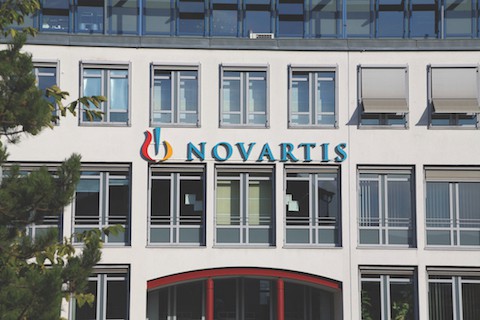
Novartis canakinumab has failed to show promise in previously treated metastatic non-small cell lung cancer (NSCLC).
Canakinumab, an interleukin-1 (IL-1) beta inhibitor, is already marketed as an inflammatory disease treatment under the brand name Ilaris.
Novartis had been hoping to extend the use of the drug into the previously treated metastatic NSCLC treatment setting.
In the phase 3 CANOPY-2 trial, canakinumab was investigated in combination with docetaxel chemotherapy in 237 adults with NSCLC, whose disease progressed while on or after previous platinum-based chemotherapy and PD-(L)1 inhibitor immunotherapy.
While the IL-1 beta inhibitor failed to hit the trial’s primary endpoint of improved overall survival in this patient population, Novartis will continue to investigate canakinumab in NSCLC.
Preliminary evidence suggests that by neutralising IL-1 beta, canakinumab could inhibit pro-tumour inflammation to enhance anti-tumour immune response, reduce tumour cell proliferation, survival and invasiveness and also impair angiogenesis, Novartis said in a statement.
Novartis is continuing two additional studies of canakinumab in NSCLC, in the first-line and adjuvant settings.
The CANOPY-1 study, evaluating canakinumab in combination with Merck & Co’s Keytruda (pembrolizumab) and chemotherapy in previously untreated NSCLC patients, could report final results before the end of the year.
The adjuvant setting trial, CANOPY-A, has enrolled more than 950 patients to date and is expected to enrol a total of 1,500 patients overall.
“While results from the CANOPY-2 trial are not what we hoped for in patients with advanced or metastatic non-small cell lung cancer who have been treated with other lines of therapy, this data give us valuable insights into IL-1 beta inhibition,” said John Tsai, head of global drug development and chief medical officer at Novartis.
“Ongoing phase 3 studies in non-small cell lung cancer continue, evaluating canakinumab in earlier treatment settings,” he added.
Previously, Novartis had attempted to expand the use of canakinumab as a potential cardiovascular treatment.
This attempt failed to generate success, with Novartis pulling an EU filing for the drug in the cardiovascular setting in 2018.
The European Medicines Agency (EMA), at the time, said that it had ‘concerns’ over the application, adding that the data submitted by Novartis was ‘not robust enough’ to show the drug’s efficacy in all patients with myocardial infarction.




